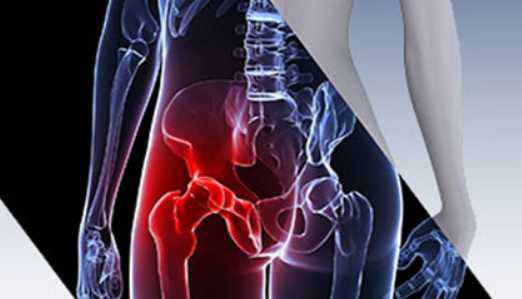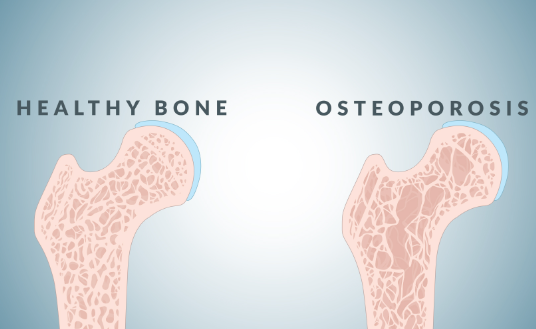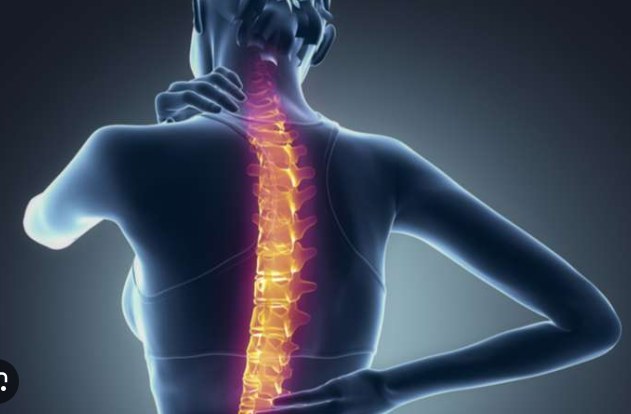By Joke Kujenya
UP TILL RECENTLY, Nnena Francis, a vibrant 60-year-old retired teacher, had always led an active lifestyle.
She recounts how she often enjoyed gardening, dancing, and playing with her grandchildren.
However, over the years, as she narrated to JKNewsMedia, she said she had neglected her diet and often skipped meals and relying on quick, processed foods, which were severely lacking in calcium.
“Well, I didn’t know the implications,” she admitted, gesturing as if to defend herself.
One sunny afternoon, while planting new flowers in her garden, Nnena said she suddenly slipped and fell. The pain in her wrist was sharp and immediate.

Promptly, she was taken to the hospital where X-rays revealed that she had sustained a fractured wrist. The doctor informed Nnena that she had osteoporosis, a condition where bones become brittle and fragile due to low calcium levels.
Nnena was shocked to say the least. She said she had always assumed that being active was enough to keep her healthy.
It was after the doctor explained to her the importance of calcium and vitamin D, and prescribed supplements along with dietary changes that she then began to be committed to a new regimen, incorporating dairy, leafy greens, and fortified foods into her meals.
She said she also started a gentle exercise programme recommended by her doctor such as weight-bearing and resistance training exercises to strengthen her bones.
Though it took time, Nnena said she gradually began to feel strength returning and desires to make her story to become a cautionary tale for her friends and family, and you in particular, pointing to this reporter, by highlighting the importance of a balanced diet in maintaining bone health.
Similarly, Maya Sunday, a 55-year-old office worker, who had been experiencing persistent back pain for months, attributing it to long hours at her desk and stress.
Ever busy with work and family, Maya often skipped meals and rarely ate foods rich in calcium, relying mainly on coffee and quick snacks.
She said one morning, while reaching for a file on a high shelf, she felt a sharp pain in her spine and collapsed.
She couldn’t explain how she found herself at the emergency room where tests revealed that Maya had suffered a vertebral fracture.
Further examination showed that her bones were significantly weakened due to osteoporosis caused by years of inadequate calcium intake.
She said her diagnosis became a wake-up call to her and her three daughters as her doctor emphasized the need for a calcium-rich diet and prescribed supplements.
Without wasting time, Maya said she started eating more dairy products, nuts, and fish and also joined a support group for women with osteoporosis, where she learned exercises to improve her bone density and posture.
“Yes, the road to recovery for every woman in this situation may be challenging, but I am determined,” she affirmed.
She said no doubt, the situation has transformed her lifestyle, and she is now prioritizing her health and encouraging her colleagues to do the same.
Understanding Bone Health: A Lifelong Commitment
For women, just like Nnena and Maya, as we journey through life, we know that our bones silently uphold us, providing the structural framework that supports every move we make.
And beyond this foundational role, little do most of us know that bones are dynamic tissues that demand care and attention, especially as we grow older. There is thus the critical need for awareness and proactive measures against osteoporosis, especially for many of us women, leading busy, deskbound lives.

How Calcium Helps
Medically, calcium stands as the cornerstone in the saga of bone health. From childhood to old age, health experts affirm that this mineral plays a pivotal role in fortifying bones against the relentless march of time.
According to Dr. Sarah Bennett, a renowned orthopedist with over two decades of experience, on her blog post, “Calcium combines with other minerals to form hard crystals, giving bones their strength and structure,” she explains.
Throughout life, bones act as a reservoir for calcium, releasing it into the bloodstream when needed for other bodily functions such as muscle contractions and nerve impulses.
However, if dietary calcium falls short, the body taps into its bone reserves, potentially leading to a gradual decline in bone density.
This decline, warns Dr. Bennett, can heighten the risk of osteoporosis — a condition where bones become brittle and prone to fractures.
Age-Adjusted Calcium Needs
According to nutritional guidelines, recommended daily calcium intake varies across different stages of life.
For children aged 1-3 years, 500 mg suffices, gradually increasing as they grow older.
Teenagers need about 1,300 mg daily during their rapid growth years, while adults typically require 1,000 mg to maintain bone strength.
“For older adults, especially women over 50 and men over 70, the recommended intake rises to 1,300 mg per day,” Dr. Bennett emphasizes, noting the decreased efficiency of calcium absorption and increased loss through the kidneys with age.

Meeting Calcium Requirements Through Diet
“Consuming a calcium-rich diet is the optimal strategy for meeting these requirements,” advises Dr. Bennett.
Dairy products like milk, cheese, and yogurt provide significant calcium, with a single serving offering between 150-305 mg.
Seafood such as canned sardines or salmon, along with vegetables like kale and broccoli, also pack a nutritional punch with calcium content ranging from 59-300 mg per serving.
Despite these options, Dr. Bennett highlights a concerning statistic: “Half of all adults fail to meet their daily calcium needs.”
She urges individuals to explore diverse food groups to ensure an adequate intake.
Furthermore, factors like low vitamin D levels, excessive caffeine or alcohol consumption, and certain medical conditions can hinder calcium absorption, necessitating tailored advice from healthcare professionals.
Navigating Supplements and Osteoporosis
In cases where dietary calcium intake proves insufficient, calcium supplements may be recommended. Dr. Bennett cautions against excessive intake and underscores the importance of supplementing wisely, ideally under medical guidance.
“Calcium supplements are often combined with vitamin D to aid absorption,” she explains, noting their role in supporting bone health, especially in individuals diagnosed with osteoporosis.
Empowering Bone Health: A Holistic Approach
“Building and maintaining bone strength is not just about calcium,” Dr. Bennett emphasizes. Engaging in weight-bearing exercises like walking or resistance training, quitting smoking, and maintaining a balanced diet rich in fruits, vegetables, and lean proteins all contribute to overall bone health.
Ultimately, the journey to preserving bone vitality demands a proactive approach. As Dr. Bennett concludes, “By understanding our nutritional needs and adopting healthy lifestyle habits, we can safeguard the foundation that supports us throughout life.”
Dr. Bennett also emphasized that in this intricate dance of nutrition, lifestyle, and medical guidance lies the key to ensuring that our bones remain strong, resilient, and ready for the journey ahead.
At JKNewsMedia, our dedication to delivering reliable news and insightful information to our cherished readers remains unwavering. Every day, we strive to provide you with top-notch content that informs and enlightens. By donating to JKNewsMedia, you directly contribute to our mission of delivering quality journalism that empowers and informs. Your support fuels our commitment to bringing you the latest updates and in-depth analysis. Let's continue to uphold the highest standards of journalism and serve our community with integrity and dedication. Thank you for being a part of the JKNewsMedia family and for your ongoing support.






Excellent information for the aged. Thanks for the good work done. You’re well appreciated 👍
Thank you so much ma’am.